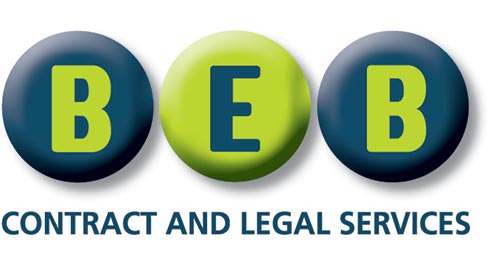With IR35 set to target businesses in the private sector next year, it is crucial for contractors, as well as their intermediaries and clients, to make the necessary preparations to ensure compliance. Otherwise, they could end up paying a significant amount of money in penalties and taxes to the government.
Your IR35 checklist
If you are a contractor or someone whose business utilises contracting services, it is essential that you are able to recognise whether IR35 will apply to you when its updated version takes effect in April 2021. Fortunately, there are steps that you can take to determine and understand your current status, as well as that of your off-payroll workers if you have any.
- Determine your current contingent workforce
The first thing you need to do is verify whether your business is using personal service companies (PSCs) or contractors. If it is, determine how many PSCs there are and whether you can group their services into similar categories.
- Verify the details of any managed or outsourced services
The next step is to determine the provisions of the outsourced or contract services your company is currently utilising. Why are you using such services? What is stipulated in the agreement between you and the contractor? Finding the answers to these questions can help you recognise the importance of the contract services you are receiving.
- Find out who oversees the employment of your off-payroll staff
The next step on your IR35 checklist is to identify the person in charge of making decisions concerning the employment status of your off-payroll workers. Is it the contractor’s agency or an intermediary? Is it your end client or someone else?
- Determine who will be responsible for paying the taxes
Once you identify who makes the decisions regarding the employment of workers outside your company’s payroll, you should find out who is currently taking care of their tax liabilities.
- Find out how the off-payroll employees/contractors came to work for you
Group your off-payroll workers in the following categories:
- Direct hires
- Those who use intermediaries or recruitment agencies
- Those who use a mix of both
It will also help if you can verify the current processes and systems you are using to hire contract service providers or personal service companies. This way, it will be easier for you to determine your tax obligations if you find that the provisions of IR35 apply to you.
- Study your payroll processes and how they affect contractors under IR35
When reviewing your payroll processes, ask yourself the following questions:
- Does my company have a current system for deducting taxes and National Insurance contributions from employees’ pay?
- Is the existing system capable of managing the payroll of personal service companies or a contingent workforce?
- Can the company issue payslips to contractors under IR35?
- Keep a record of payments made to contractors/PSCs
It is vital to maintain a record of payments that you make to contractors or personal service providers. Similar to making payments to PAYE employees, you need to report these payments to Her Majesty’s Revenue and Customs (HMRC) via a Full Payment Submission. You must also record all deductions on a deductions worksheet.
- Communicate with contractors and personal service providers
If you are using the services of contractors, make sure they are aware of the upcoming changes to IR35. Being in constant communication with your contractors will help prevent walkouts (which occurred in the public sector when IR35 was first implemented) as both parties will be aware of and consent to the decisions made.
Factors used when determining IR35 status
Once you have completed the IR35 checklist, make sure you know where you stand with this tax legislation to ensure compliance and to avoid hefty fines. There are certain factors that HMRC uses to determine the IR35 status of a business or contractor. These factors are divided into two categories: primary and secondary.
Primary factors
These three primary conditions should all be present for a contract to be considered under IR35:
- Personal service
Is the contractor required to perform the work personally, or can they see seek assistance or substitution? When a contractor has the right to hire a subcontractor, substitute or assistant, this is an indication that there is no personal service obligation.
- Mutuality of obligation
Does the client need to provide the contractor with work? Conversely, is the contractor obliged to accept the offer? If the answer to both questions is “yes”, this means that there are mutual obligations so the contract comes under IR35.
- Control
Is the contractor free to carry out the work as they see fit? If so, this indicates self-employment. Otherwise, the relationship is considered to involve employment as the client controls how the work is carried out.
Secondary factors
While these secondary factors are not definitive, they can provide you with background and context. This will make it easier for you to determine and verify your IR35 status, especially if your case is considered “borderline”.
- Defined task
If you are a contractor and you simply work as a “helping hand”, this implies employment. On the other hand, if you are required to carry out a specific task that will cease when the contract ends, this indicates self-employment.
- Method of payment
HMRC considers workers who are paid by the hour, day or week to be regular employees. Those who are paid per project or task are deemed to be self-employed.
- Work hours
You will be classed as employed if you need to work at a specific time. On the other hand, if your contract states that your work is complete once you have produced the required outcomes or deliverables, you will be regarded as self-employed.
- Simultaneous contracts
Working for only one client indicates employment, whereas working for multiple clients (especially when they overlap) denotes self-employment.
- Equipment provision
You are considered to be employed if the equipment that you use to carry out the work belongs to your client. On the other hand, you are self-employed if the equipment is yours.
Seek professional and expert advice
Some of the provisions of IR35 can be ambiguous and difficult to understand, especially if you have limited knowledge of UK employment law. For this reason, it is best to seek professional and expert advice to eliminate confusion and to ensure that you are on the right side of the law. This way, you can avoid hefty fines that could put your business or contracting work at risk.
At BEB, we can offer you expert advice on all matters relating to IR35. Our team of tax and employment law professionals can review your contract to help you determine your IR35 status. Speak to us today.

